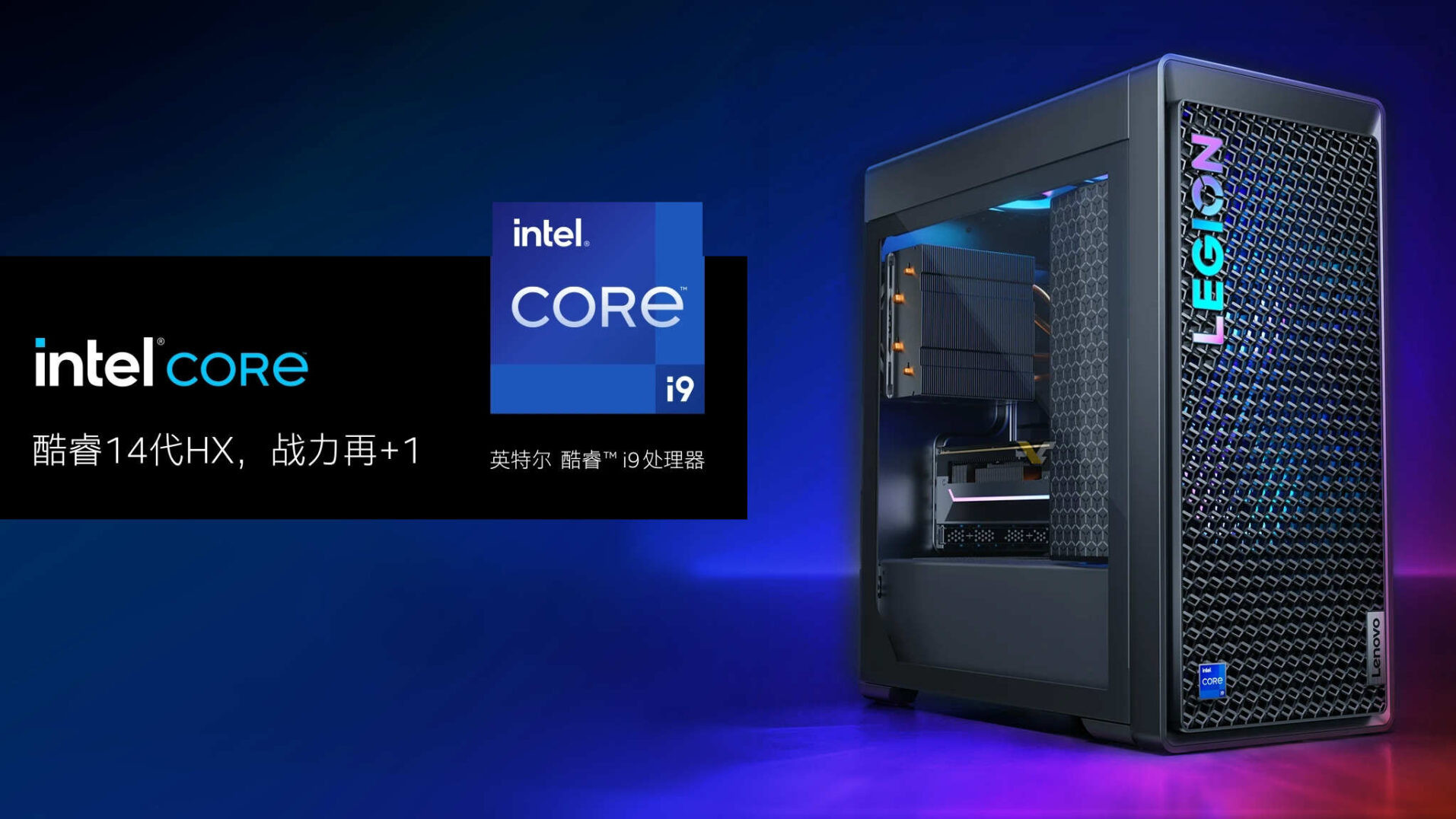Lenovo has an idea to prevent desktop PCs from dying out – by using laptop CPUs (yes, you read that right)
Lenovo’s Legion solution: Laptop silicon = cheaper desktop PCs = more sales

Lenovo is taking a new angle with desktop PCs, utilizing high-end laptop chips in them, rather than traditional desktop processors.
What’s the point of that? Well, we’ll come back to explore that further, but the top and bottom of it is that this is about reducing costs.
To that end, Chinese tech site IT Home reports (via VideoCardz) that Lenovo has a new range of Legion 7000K gaming PCs which are built around an MoDT platform and use Intel’s powerful HX series laptop processors (from the current-generation, and last-gen too).
What’s an MoDT platform? That stands for ‘Mobile on Desktop’, meaning the use of a mobile (laptop) CPU in the desktop PC’s motherboard.
A normal motherboard has a socket for a desktop CPU, but in the case of these MoDT PCs, the processor is literally built into the motherboard (soldered onto it).
What that means is it’s not possible to upgrade the processor (that’s the advantage of a traditional socket, of course – you can remove the CPU from said socket, and pop in a replacement or upgrade).
However, the other components on this custom MoDT motherboard (RAM, graphics card) can still be upgraded as with a normal desktop PC. In all respects, this is a desktop PC, just with a slightly different type of motherboard that comes with the processor bolted on.
Sign up for breaking news, reviews, opinion, top tech deals, and more.
Sadly there’s no clue as to a release date or pricing here, so we’ll just have to wait and see.

Analysis: A novel spin on desktops that could take off
The MoDT concept has already gained popularity over in China, but this is a big step forward for these kinds of PCs. Remember, this is Lenovo getting fully on board with this concept – the biggest PC vendor in the world. You couldn’t get a bigger cheese out of the major PC manufacturers (and you’ve got to wonder whether the others will follow suit soon enough).
Furthermore, not only is this a normal desktop PC chassis, save for the chip and the noted caveats, but it’ll also run the processor with full-on desktop power levels – and therefore performance – with cooling provided by a custom CPU cooler capable of keeping these chips tamed in terms of temperatures, even when pushed hard.
The end result, in theory, is a desktop PC with plenty of pep – not far off a Core i9 desktop chip, especially since the recent troubles with the stability of those products – but with savings made due to using the mobile CPU instead of a traditional socketed desktop processor.
So, as noted at the outset, the hope is that this could lead to more affordable high-performing PCs – and better PC sales – with the mobile processor being able to hold its own given a good cooler. Also bearing in mind, of course, that the GPU is the more important part of the puzzle for gaming PCs (well, certainly away from 1080p resolution, anyway).
This seems like a smart idea in many ways, then, particularly when you consider that the downside – not being able to upgrade the CPU – is a moot point for a good many folks. There are plenty of people who buy a PC and never upgrade the processor, with beefing up the GPU a more common practice (and perhaps a memory upgrade at some point).
Granted, if the processor in one of these MoDT PCs ends up bricked, that’s a fly in the ointment – you can’t replace it, so you’ll need to buy an entire new motherboard unit (and fiddle about with a more complex upgrade). Still, that’s a compromise that many will be happy enough to live with, given the potential trade-offs here, and the likelihood is that the CPU shouldn’t go pop (not unless you get pretty unlucky).
You might also like
Darren is a freelancer writing news and features for TechRadar (and occasionally T3) across a broad range of computing topics including CPUs, GPUs, various other hardware, VPNs, antivirus and more. He has written about tech for the best part of three decades, and writes books in his spare time (his debut novel - 'I Know What You Did Last Supper' - was published by Hachette UK in 2013).